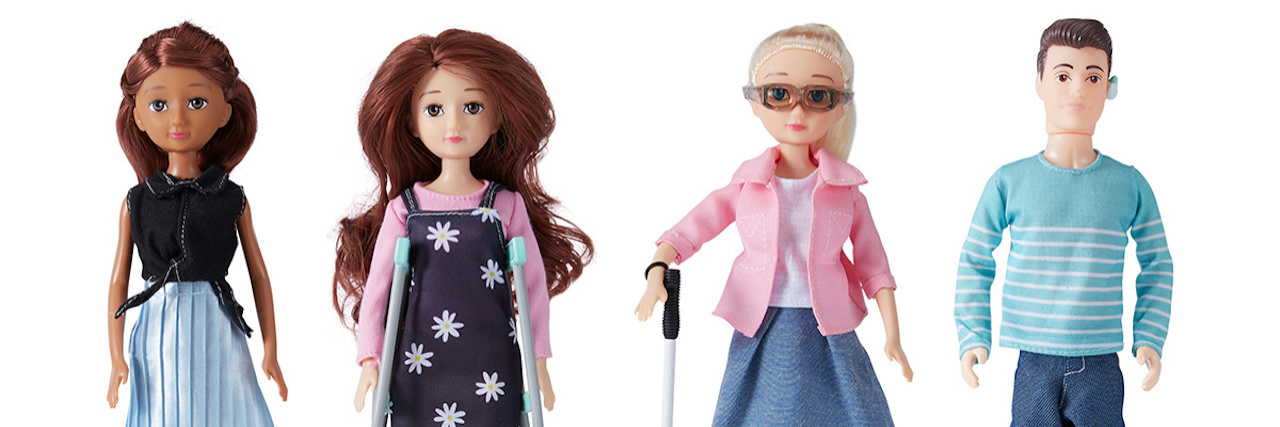What happened: Kmart in Australia has launched a line of dolls with disabilities, according to Nine News. The new inclusive toy line features dolls with hearing aids, glasses, wheelchairs and more. The dolls are simply called Fashion Dolls and retail for $6 through Kmart Australia’s website and in-store. One has a prosthetic leg, another uses a cane and has dark glasses, and a is on crutches and has a cast. The only male doll in the lineup has a hearing aid. So far, the dolls have been a big hit, with children thrilled to see accurate representations of themselves on the shelves.
We hope these dolls help children celebrate all of the wonderful things that make us different and unique; and that they can help remove some of the stigma around disability. — John Gualtieri, Kmart Retail Director
Attention @Kmart_Australia shoppers! The chain's line of #inclusive dolls is helping to ensure that kids with #disabilities, including #VisualImpairment, feel represented when they play. #InclusionMatters in the #BlindNewWorld. https://t.co/iAS7IQAHAF
— BlindNewWorld (@BlindNewWorld) September 1, 2020
The Frontlines: In the United States an estimated 61 million adults live with a disability, according to the Centers for Diseases Control. UNICEF estimates that 93 million children worldwide live with at least one disability. “We want to foster a culture that is inclusive, and a big part of that is reflecting the rich diversity in the community around us,” said Marchelle Harrison, head of diversity and inclusion at Kmart Group. Cerebral palsy, Down syndrome, ADHD, autism spectrum disorder, and epilepsy are included among the most common disorders, according to Deseret News.
- Cerebral palsy is the most common physical disability in childhood, affecting about 2 in 1,000 infants worldwide
- About 1 in 50 children has either a cognitive or physical disability
- There has been an increase in rates of childhood disability diagnosis, partly due to more widespread recognition and understanding of intellectual disabilities
A Mighty Voice: Our contributor, Athena Stevens, shared why toys that represent people with disabilities can be so important. “Children need toys that reflect themselves and the diversity of the world around them. Toys teach children from a very young age what ‘normal’ is. Just about any little girl wants a doll that looks just like her. And the reason she wants this is not egotism or selfishness. That little girl needs to know she is seen by the world around her.” You can submit your first-person story, too.
Get more on disability: Sign up for our weekly newsletter.
Add Your Voice:
Other things to know: The disability community and their allies are hard at work fighting the stigma that accompanies all kinds of disabilities. Read more here about changes taking place:
- BBC America’s ‘CripTales’ Features Disabled Talent Onscreen and Behind the Camera
- Bill Would Reverse ‘Discriminatory’ Policy That Mostly Impacts Women of Color
- Oscars Announces New Best Picture Criteria That Could Boost Disability Representation
Where to shop: The inclusion dolls are available through Kmart Australia’s website for $6 each. At the moment you can’t designate which doll you want through online ordering and will be sent one of the four models, randomly selected.
Header image via Kmart Australia


